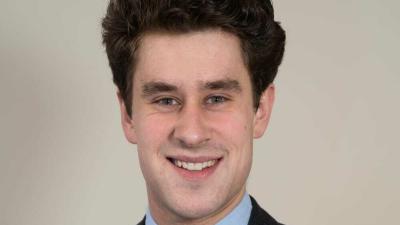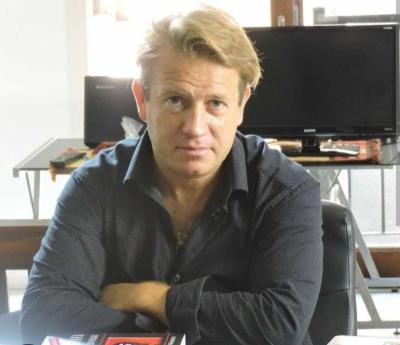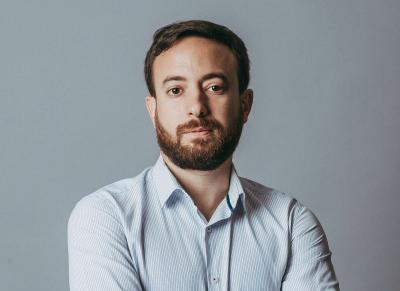Interview with Ludwig Brühl - ADF (Alliance Defending Freedom) International
The original version of this interview has been published at: https://disidentia.com/en-una-sociedad-libre-no-hay-lugar-para-castigar-a-personas-que-comparten-sus-opiniones-pacificas-y-honestas/
Ludwig Brühl is communications officer at ADF International, an alliance-building, non-profit legal organization focused on free speech, life, family and religious freedom. ADF International operates at various international institutions and courts and is present in Brussels (EU institutions), Strasbourg (CoE and ECHR), New York (UN Headquarters), Geneva (UN Human Rights Council), Vienna (OSCE), South America (Inter-American Court of Human Rights and Commission on Human Rights), as well as having offices in London and Washington DC.
Álvaro Penas: What is ADF International and what are its objectives?
Ludwig Brühl: ADF International is a faith-based legal advocacy organization that protects fundamental freedoms and promotes the inherent dignity of all people. We aim to achieve significant changes in law and culture worldwide to ensure that religious freedom prevails, all can speak freely, parental rights are guaranteed, life is safeguarded, and marriage and family are protected.
One of your objectives is religious freedom, but we see that in countries like Nigeria Christians are being killed for their faith in the face of media indifference. What can be done to put pressure on international bodies to take action?
The media’s indifference to religious persecution is truly lamentable. What we need is that individuals, NGOs and other organisations, as well as governments themselves, increase their efforts to advocate for the persecuted worldwide. Through our advocacy at the international institutions, we engage the highest levels of law and governance and hope to thereby effect change across the globe. For example, by way of our consultative status at the United Nations, our team of advocates at the Human Rights Council in Geneva has a voice at the inter-governmental body made up of 47 States, which is responsible for the promotion and protection of all human rights around the globe. We frequently provide input for the Universal Periodic Review process, which holds countries accountable for their human rights commitments. We channel this mechanism to point out urgent religious freedom issues and offer solutions based in international law. We also hold accreditation with the European Commission and Parliament and participate in the EU's Fundamental Rights Platform in order to bolster its religious freedom work. It is often the case that if governments care, the media care and vice versa. This way they put pressure on each other, calling for and effecting change.
You are currently defending Yahaya Sharif-Aminu, a musician sentenced to death in Kano State (Nigeria) under the blasphemy law. Yahaya is awaiting a retrial, but his goal is to have the blasphemy law declared unconstitutional. Is this possible?
Yahaya’s story is far from an isolated incident. The criminalization of blasphemy in Nigeria carries with it dangerous implications for the country as a whole. In a country of more than 200 million, split nearly evenly between Christians and Muslims, blasphemy laws are a prime driver of societal tensions. Those laws punish the innocent for expressing their beliefs, prevent people from sharing their faith, and perpetuate societal violence.
Yahaya’s case is potentially precedent-setting in that it does have the potential to overturn blasphemy laws that threaten the rights of all religious minorities in Nigeria, and in particular Christians. We are hopeful that the Supreme Court will finally declare blasphemy laws unconstitutional and in direct violation of international human rights law. 71 of the world’s 195 countries have blasphemy laws. In several of these countries, violations of these laws can be punishable by prison time or even death. Nigeria has an influential voice throughout Africa and the Muslim world—this is an opportunity to lead the way toward abolishing the draconian blasphemy laws that generate profound violations of human rights across the globe.
One case that can only be described as Orwellian was the arrest of Isabel Vaughan-Spruce in Birmingham for praying silently in front of an abortion clinic. Shortly afterwards, Father Sean Gough was arrested on the same charges. Both have been acquitted, but are we not getting closer and closer to the “thoughtcrime” described by Orwell in his “1984” novel?
Indeed. It is extremely concerning that Isabel Vaughan-Spruce and Father Sean Gough were arrested solely for the content of their thoughts. Silent prayer is possibly the most private internal action that one can manifest. In a free and fair society, everyone sometimes feels discomfort when confronted with a different thought or idea. Part of upholding this kind of society is allowing for true diversity of opinion in the public square. Although someone might find the idea of silent prayer outside of an abortion facility disagreeable, this doesn’t mean that it’s right to arrest and restrict the rights and freedoms of others. Let’s keep in mind that a climate protester standing next to Isabel or Father Sean would not have been arrested.
Isabel was arrested for the nature of her thoughts. That is why censorship zones (so-called “buffer zones”) are so dangerous. Harassment is already illegal in the UK. Censorship zones don’t newly ban harassment. What they do is ban other forms of behaviour which are entirely legal and protected in human rights law under freedom of speech, thought, and assembly, including vital offers of help to women. The law should be able to differentiate between silent unassuming prayer and charitable offers of help and criminal harassment and intimidation. Censorship zones conflate all of these, bringing the threshold of criminality to a level impermissibly low for a free society.
In dictatorships, such as the USSR, political crimes were defined in an exaggerated and pompous way. In this sense, I wanted to ask you about the case of the Mexican Congressman Gabriel Quadri who has been labelled a “political rapist against women”.
Yes, Gabriel Quadri’s case is hugely concerning. The former presidential candidate and current congressman in Mexico has been convicted as a “political violator against women” for expressing concern that men who identify as women have taken spaces in Congress reserved for women. As of 2019, Mexico has had a law in place requiring 50/50 representation of men and women in Congress. In the 2021 elections, two Congressional seats assigned to women were given to males who identify as women. Mr. Quadri tweeted about the Congressional seats, making the point that it is an injustice for males to take advantage of the law to gain access to political positions designated for women. The tweets broadly covered issues relating to “trans ideology,” contained no foul language, named no particular person, and in no way amounted to an incitement to violence. Yet for standing up for women’s opportunities, he could now suffer egregious personal and professional consequences.
The highest electoral court in Mexico ruled that the statements made by Quadri on Twitter about the situation are discriminatory, and ordered him to delete his tweets, issue a compelled public apology, and be registered as a gender-based political violator—censorship measures that clearly infringe on his civil and political rights as a Mexican citizen and breach his international human right to free speech. In sum, Quadri has been convicted as a perpetrator of “gender-based political violence” on the sole basis of his non-violent tweets. Having exhausted his options for justice in Mexico, he is now taking his case to the Inter American Commission for Human Rights with the support of ADF International. There is no place in a free society for punishing individuals who share their peaceful and honest views on the important issues of our time.
What has happened to Quadri is becoming commonplace in Mexico today. This is an inevitable consequence of Mexico’s problematic laws, which create a culture of violence and discrimination. By prosecuting and penalizing Quadri for raising a matter of public interest on Twitter, the Mexican state is shutting down the ability to have critical conversations about issues that profoundly impact women’s rights and all of society. International bodies repeatedly have called on Mexico to correct its approach to freedom of speech. (See IACHR Special Rapporteur for Freedom of Expression, Resolution of the European Parliament, UN Special Rapporteur on Human Rights Defenders). But such things are not only happening in Mexico. We are seeing a global trend to silence certain kinds of speech that go to the core questions of human existence — take, for example, the long-standing parliamentarian Päivi Räsanen from Finland, targeted for "hate speech" for posting Scripture on Twitter. She was put on trial by the state prosecutor for “ethnic agitation,” which carries a potential maximum punishment of two years imprisonment, for questioning her own church’s official sponsorship of the LGBT event ‘Pride 2019’, accompanied by an image of a Bible text.
So yes, these types of comments and questions are met with a disproportionate response from authorities that seek to censor certain types of speech.
Censorship is becoming increasingly common and the cancellation culture is the best example of this. Can we fight this cancel culture?
It is imperative that we fortify ourselves against cancellation by peacefully refusing to recede from the conversation. Everyone has the right to live according to their convictions, which includes the right to express our beliefs. It is crucial that every person of conviction works to protect and preserve this right against the threat of cancel culture, and that we rally around those that are “cancelled” for peacefully voicing their opinions. We must also be aware that the same currents that underlie “cancel culture” in the West often manifest as a severe censorship, possibly even carrying with it a sentence of death, in other parts of the world. We must vigilantly resist censorship in all its forms, knowing just how bad it can get when we allow the government to determine what we can and cannot say.
Read also
Spain turns right and Sánchez calls elections
The local and regional elections held on 28 May marked a turning point in Spanish politics. The most obvious summary is a clear victory of the Right and a debacle of the Left, whose most radical version practically disappears from the institutions.
Álvaro Peñas
Bohdan Chuma: “Ukraine’s history is a normal and typical history of a European nation”
Putin is trying to write a history of the Russian Empire that begins with the Tsarist Empire, continues with Soviet Communism, the Red Empire, and now continues under his government.
Álvaro Peñas
Nicolás Márquez: “Allende was a usurper of power who had to be deposed by force because he was surrounded by terrorists and foreign agents”.
Interview with Nicolás Márquez, essayist and political analyst.














Comments (0)